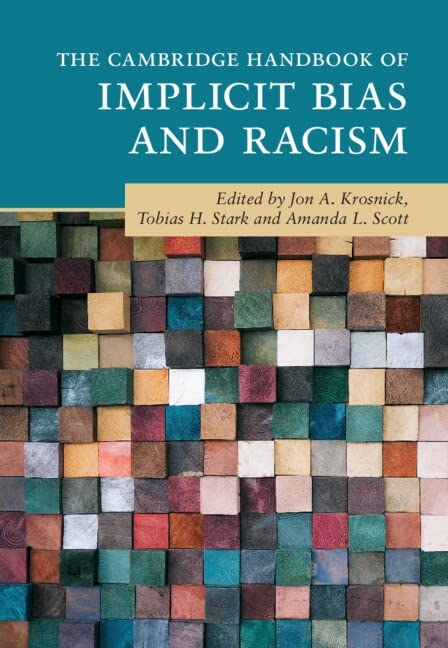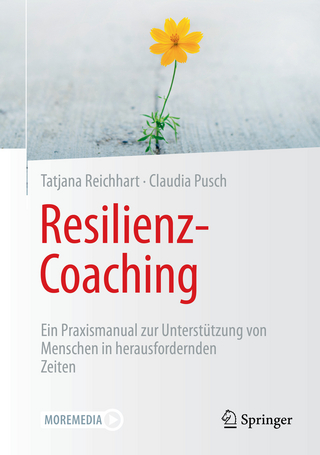
The Cambridge Handbook of Implicit Bias and Racism
Cambridge University Press (Verlag)
978-1-108-79443-5 (ISBN)
- Lieferbar (Termin unbekannt)
- Versandkostenfrei innerhalb Deutschlands
- Auch auf Rechnung
- Verfügbarkeit in der Filiale vor Ort prüfen
- Artikel merken
The concept of implicit bias – the idea that the unconscious mind might hold and use negative evaluations of social groups that cannot be documented via explicit measures of prejudice – is a hot topic in the social and behavioral sciences. It has also become a part of popular culture, while interventions to reduce implicit bias have been introduced in police forces, educational settings, and workplaces. Yet researchers still have much to understand about this phenomenon. Bringing together a diverse range of scholars to represent a broad spectrum of views, this handbook documents the current state of knowledge and proposes directions for future research in the field of implicit bias measurement. It is essential reading for those who wish to alleviate bias, discrimination, and inter-group conflict, including academics in psychology, sociology, political science, and economics, as well as government agencies, non-governmental organizations, corporations, judges, lawyers, and activists.
Jon A. Krosnick is the Frederic O. Glover Professor in Humanities and Social Sciences and Professor of Communication, Political Science, and Psychology at Stanford University, USA. He has won the lifetime achievement award from the American Association for Public Opinion Research and the Nevitt Sanford Award from the International Society of Political Psychology.
Tobias H. Stark is Associate Professor at Utrecht University, the Netherlands. He studies prejudice in social networks and has won the prize for best dissertation from the Dutch Sociological Association and from the Erasmus Prize Foundation, and the Lorenz-von-Stein prize for best master's thesis. He has received more than 10 research fellowships and grants, including an ERC consolidator grant, to support his work.
Amanda L. Scott is co-owner of The Strategy Team, an applied research firm, and a social psychologist trained in stereotyping, legal decision-making, research design, and survey methodology. She won a fellowship from the National Science Foundation and was appointed as Social Science Research Advisor to the Ohio Department of Job and Family Services.
Foreword
Introduction: taking stock of explicit and implicit prejudice
1. Report on the NSF conference on implicit bias
Section 1. What is implicit bias and (how) can we measure it?:
2. Implicit bias: what is it?
3. Lessons from two decades of project implicit
4. Aversive racism and implicit bias
5. Stretching the limits of science: was the implicit-racism debate a 'bridge too far' for social psychology?
Section 2. Predicting behavior and attitudes with measures of implicit bias:
6. The impact of implicit racial bias in racial health disparities: a practical problem with theoretical implications
7. Revisiting the measurement of group schemas in political science
8. Implicit bias and discrimination: evidence on causality
9. What is the unique contribution of implicit measures in predicting political choices?
10. Predicting biased behavior with implicit attitudes: results from a voting experiment and the 2008 Presidential election
Section 3. Challenges of research on implicit Bias:
11. The rationality, interpretation and overselling of tests of implicit cognition
12. Listening to measurement error: lessons from the IAT
13. IAT Scores, racial gaps, and scientific gaps
14. Commentary
Section 4. Improving measurement and theorizing about implicit bias:
15. Methodological issues in the study of implicit attitudes
16: The bias of crowds: rethinking implicit bias in social context
17. Latent state-trait analyses for process models of implicit measures
18. Increasing the validity of implicit measures: new solutions for assessment, conceptualization, and action explanation
19. A model of moderated convergence between explicit dispositions, implicit dispositions, and behavior
20: Complications in predicting intergroup behavior from implicit biases: one size does not fit all
Section 5. How to change implicit bias?:
21. Changing implicit bias vs empowering people to address the personal dilemma of unintentional bias
22. How can we change implicit bias toward outgroups?
Section 6. Explicit prejudice, alive and well?:
23. A survey researcher's response to the implicit revolution: listen to what people say
24. A history of the new racisms: symbolic racism, modern racism, and racial resentment
25. The relations among explicit prejudice measures: anti-black affect and perceptions of value violation as predictors of symbolic racism and attitudes toward racial policies
26. Complexities in the measurement of explicit racial attitudes
27. The continuing relevance of Whites' explicit bias—and reflections on the tools to measure it
Section 7. The public's (mis)perception of implicit bias:
28. Public attitudes on implicit bias
29. The mass public's view of implicit bias, with implications for scientific communication in a politically polarized age.
| Erscheinungsdatum | 02.02.2024 |
|---|---|
| Reihe/Serie | Cambridge Handbooks in Psychology |
| Zusatzinfo | Worked examples or Exercises |
| Verlagsort | Cambridge |
| Sprache | englisch |
| Themenwelt | Geisteswissenschaften ► Psychologie ► Sozialpsychologie |
| ISBN-10 | 1-108-79443-2 / 1108794432 |
| ISBN-13 | 978-1-108-79443-5 / 9781108794435 |
| Zustand | Neuware |
| Informationen gemäß Produktsicherheitsverordnung (GPSR) | |
| Haben Sie eine Frage zum Produkt? |
aus dem Bereich


